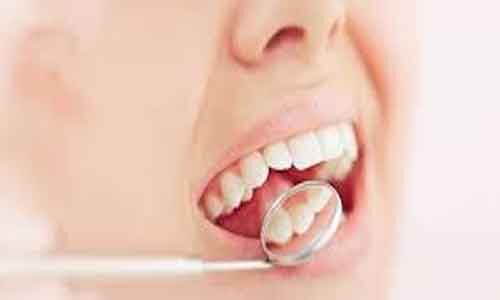- Home
- Medical news & Guidelines
- Anesthesiology
- Cardiology and CTVS
- Critical Care
- Dentistry
- Dermatology
- Diabetes and Endocrinology
- ENT
- Gastroenterology
- Medicine
- Nephrology
- Neurology
- Obstretics-Gynaecology
- Oncology
- Ophthalmology
- Orthopaedics
- Pediatrics-Neonatology
- Psychiatry
- Pulmonology
- Radiology
- Surgery
- Urology
- Laboratory Medicine
- Diet
- Nursing
- Paramedical
- Physiotherapy
- Health news
- Fact Check
- Bone Health Fact Check
- Brain Health Fact Check
- Cancer Related Fact Check
- Child Care Fact Check
- Dental and oral health fact check
- Diabetes and metabolic health fact check
- Diet and Nutrition Fact Check
- Eye and ENT Care Fact Check
- Fitness fact check
- Gut health fact check
- Heart health fact check
- Kidney health fact check
- Medical education fact check
- Men's health fact check
- Respiratory fact check
- Skin and hair care fact check
- Vaccine and Immunization fact check
- Women's health fact check
- AYUSH
- State News
- Andaman and Nicobar Islands
- Andhra Pradesh
- Arunachal Pradesh
- Assam
- Bihar
- Chandigarh
- Chattisgarh
- Dadra and Nagar Haveli
- Daman and Diu
- Delhi
- Goa
- Gujarat
- Haryana
- Himachal Pradesh
- Jammu & Kashmir
- Jharkhand
- Karnataka
- Kerala
- Ladakh
- Lakshadweep
- Madhya Pradesh
- Maharashtra
- Manipur
- Meghalaya
- Mizoram
- Nagaland
- Odisha
- Puducherry
- Punjab
- Rajasthan
- Sikkim
- Tamil Nadu
- Telangana
- Tripura
- Uttar Pradesh
- Uttrakhand
- West Bengal
- Medical Education
- Industry
Maintaining good oral hygiene may lower diabetes risk: Diabetelogia

South Korea: Good oral hygiene may decrease the risk for the development of new-onset diabetes, according to a recent study in the journal Diabetologia. The study found that brushing teeth three times a day may lower the diabetes risk while an increased number of missing teeth and the presence of the periodontal disease may augment it.
Inflammation is an important factor in the development of diabetes, a major public health problem worldwide. Poor oral hygiene and periodontal disease can provoke systemic inflammation and transient bacteremia. So, Yoonkyung Chang, Ewha Womans University College of Medicine, Seoul, South Korea, and colleagues hypothesized that periodontal disease and oral hygiene indicators would be associated with the new-onset diabetes occurrence.
The researchers analyzed collected data from 2003 to 2006. It included 188,013 subjects from the National Health Insurance System-Health Screening Cohort (NHIS-HEALS) in Korea who had no missing data for demographics, past medical history, oral hygiene indicators, or laboratory findings. The researchers identified the presence of periodontal disease on the basis of various datasets. Oral hygiene behaviors (number of tooth brushings, a dental visit for any reason, and professional dental cleaning) were collected as self-reported data of dental health check-ups. During oral health examination, the dentists ascertained the number of missing teeth.
The incidence of new-onset diabetes was defined according to ICD-10 codes E10–E14. The criteria included at least one claim per year for both visiting an outpatient clinic and admission accompanying prescription records for any glucose-lowering agent or were based on a fasting plasma glucose ≥7 mmol/l from NHIS-HEALS.
Key findings of the study include:
- Of the included subjects, 17.5% had periodontal disease.
- After a median follow-up of 10.0 years, diabetes developed in 31,545 subjects.
- The presence of periodontal disease (HR 1.09) and number of missing teeth (≥15 teeth) remained positively associated with the occurrence of new-onset diabetes (HR 1.21).
- Frequent tooth brushing (≥3 times/day) was negatively associated with the occurrence of new-onset diabetes (HR 0.92).
"Frequent brushing of teeth may be an attenuating factor while the presence of periodontal disease and an increased number of missing teeth may be augmenting factors for the occurrence of new-onset diabetes," wrote the authors. "Improving oral hygiene may be associated with a decreased risk of occurrence of new-onset diabetes," they concluded.
"Improved oral hygiene is associated with decreased risk of new-onset diabetes: a nationwide population-based cohort study," is published in the journal Diabetologia.
DOI: https://link.springer.com/article/10.1007/s00125-020-05112-9
Dr Kamal Kant Kohli-MBBS, DTCD- a chest specialist with more than 30 years of practice and a flair for writing clinical articles, Dr Kamal Kant Kohli joined Medical Dialogues as a Chief Editor of Medical News. Besides writing articles, as an editor, he proofreads and verifies all the medical content published on Medical Dialogues including those coming from journals, studies,medical conferences,guidelines etc. Email: drkohli@medicaldialogues.in. Contact no. 011-43720751


